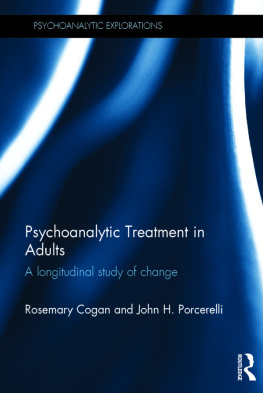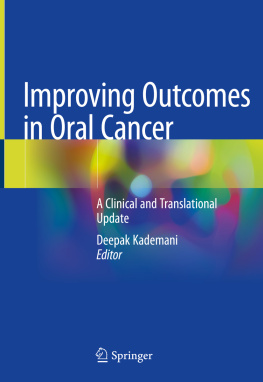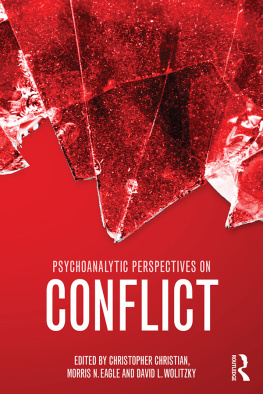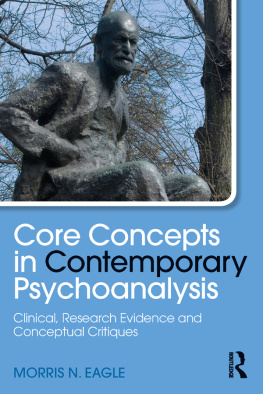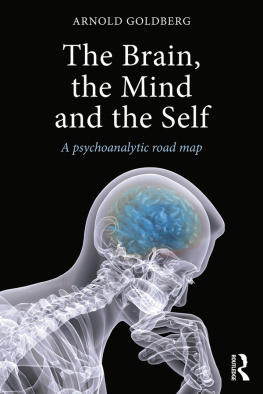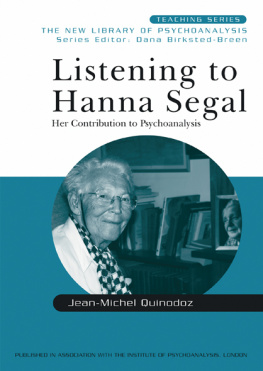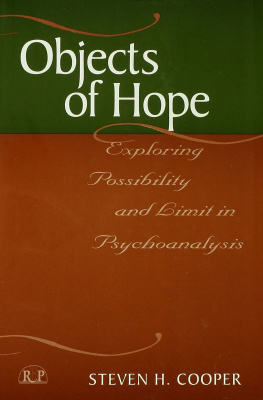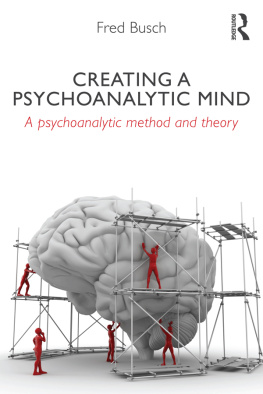
Psychoanalytic Treatment in Adults
The outcomes of psychoanalysis, as with other psychotherapies, vary considerably. Psychoanalytic Treatment in Adults examines the results of a longitudinal study of change during psychoanalysis, illuminating the characteristics of patients, analysts, and analyses which can help to predict outcomes of treatment.
Written by two experienced psychologist psychoanalysts, chapters in the book describe longitudinal changes in sixty completed analyses to consider what patients with very different analytic outcomes were like at the beginning and end of psychoanalyses. Psychoanalysts used a clinician report measure, the Shedler-Westen Assessment Procedure, to describe a patient at the beginning of psychoanalysis and every six months until the analysis ended. This allowed the authors to learn about the prediction of analytic outcomes. An applied mathematician then considered the relationship between changes in insight and changes in other characteristics of patients ending analysis with maximum benefits.
Chapters explore five outcomes: a negative therapeutic reaction; attrition when the patient drops out; attrition due to external events; mutual agreement between patient and analyst without maximum benefits; and mutual agreement between patient and analyst with maximum benefits.
The findings from these chapters will be of interest to researchers and academics in the fields of psychoanalysis, psychotherapy, psychodynamic therapy, psychoanalytic education, psychiatry, and psychology. The results should also help clinicians recognize potential problems early in analytic treatments so that they can work more effectively with patients.
Rosemary Cogan is Professor of Psychology in the Department of Psychological Sciences, Texas Tech University, USA.
John H. Porcerelli is Director of Behavioral Medicine and Professor in the Department of Family Medicine and Public Health Sciences, Wayne State University School of Medicine, USA.
Psychoanalytic Explorations series
Books in this series:
The Heart of Mans Destiny
Lacanian psychoanalysis and early Reformation thought
Herman Westerink
Wish-fulfilment in Philosophy and Psychoanalysis
The tyranny of desire
Tamas Pataki
Environmental Melancholia
Psychoanalytic dimensions of engagement
Renee Lertzman
Psychoanalytic Treatment in Adults
A longitudinal study of change
Rosemary Cogan and John H. Porcerelli
Psychoanalytic Treatment
in Adults
A longitudinal study of change
Rosemary Cogan and
John H. Porcerelli

First published 2016
by Routledge
2 Park Square, Milton Park, Abingdon, Oxon OX14 4RN
and by Routledge
711 Third Avenue, New York, NY 10017
Routledge is an imprint of the Taylor & Francis Group, an informa business
2016 Rosemary Cogan and John H. Porcerelli
The right of Rosemary Cogan and John H. Porcerelli to be identified as authors of this work has been asserted by them in accordance with sections 77 and 78 of the Copyright, Designs and Patents Act 1988.
All rights reserved. No part of this book may be reprinted or reproduced or utilized in any form or by any electronic, mechanical, or other means, now known or hereafter invented, including photocopying and recording, or in any information storage or retrieval system, without permission in writing from the publishers.
Trademark notice: Product or corporate names may be trademarks or registered trademarks, and are used only for identification and explanation without intent to infringe.
British Library Cataloguing in Publication Data
A catalogue record for this book is available from the British Library
Library of Congress Cataloging in Publication Data
Cogan, Rosemary, author.
Psychoanalytic treatment in adults : a longitudinal study of change / Rosemary Cogan and John H. Porcerelli.
p. ; cm. (Psychoanalytic explorations)
Includes bibliographical references and index.
I. Porcerelli, John H., 1957- , author. II. Title. III. Series: Psychoanalytic explorations series.
[DNLM: 1. Mental DisorderstherapyCase Reports. 2. Psychoanalytic TherapyCase Reports. 3. Longitudinal StudiesCase Reports. 4. Treatment OutcomeCase Reports. WM 460.6]
RC480.5
616.891dc23
2015033271
ISBN: 978-1-138-90258-9 (hbk)
ISBN: 978-1-315-69736-9 (ebk)
Typeset in Bembo
by Swales & Willis Ltd, Exeter, Devon, UK
We met some years ago when we were each in a training year at Detroit Psychiatric Institute Hospital. We both cherished clinical work, psychoanalytic theory, and research. Rosemary returned to the faculty in the Department of Psychological Sciences at Texas Tech University and was in clinical practice for many years. John went to the Department of Family Medicine at Wayne State University School of Medicine and is also in clinical practice. Our collaboration and friendship continued at a distance as we both completed psychoanalytic training at the Dallas and Michigan Psychoanalytic Institutes respectively.
We are deeply grateful for the patient, careful work of the participating analysts that made this longitudinal study possible. We are grateful as well to the International Psychoanalytical Association, which provided important funding for this project as it began. We thank Drew Westen and Jonathan Shedler for sharing their measure, the ShedlerWesten Assessment Procedure, and for discussions with us about the measure and this project.
We thank Brian Quinn and others on the faculty and staff of the Texas Tech University Library for their outstanding help throughout this work. We thank Kathy Gillis, our superb writing consultant at Texas Tech University; we have watched our writing improve because of her help.
We thank our families and friends who encouraged this work. Finally, we thank analysts past, present, and future.
Three longstanding questions have led to this work. First, what characteristics of patients at the beginning of analysis predict different outcomes of analysis? To answer this question required a longitudinal study. Second, what characterizes patients at the end of analyses that have ended with different outcomes in the view of analysts? What, for instance, differentiates between patients who end analysis with maximum benefits in contrast to patients who end analysis with good outcomes but without maximum benefits? These questions have really not been answered in the wealth of psychoanalytic clinical and research literature. Finally, we wanted to know more about how change occurs in analysis. The development of the ShedlerWesten Assessment Procedure (SWAP: Shedler, 2015; Westen & Shedler, 1999a, 1999b) made this longitudinal study possible.
The SWAP, a clinician report measure, includes 200 items that might describe a person. The items were developed over some years and are worded in theory-neutral language that can be agreed on by all sorts of clinicians with widely varying perspectives. The clinician sorts the items into eight categories ranging from those that describe the patient very well to those that are irrelevant, do not apply to the patient, or about which nothing is known by the clinician, with a fixed number of items required in each category. From this, individual items or groups of items can be used to describe an individual patient or group of patients; scales of personality disorders, traits, and adaptive functioning can also be used to describe patients. The SWAP was grounded in extensive research and further empirical support for the measure developed rapidly after the measure became available. We tested the measure ourselves in several preliminary studies (Cogan, 2007; Cogan & Porcerelli, 2005; Porcerelli, Cogan, & Hibbard, 2004). Satisfied with the results, we set to work on the longitudinal study of change during psychoanalysis that is the subject of this book. A SWAP Insight scale was later developed by Lehmann and Hilsenroth (2011) and we have included this with the original SWAP scales.
Next page
